Russian Circles' Mike Sullivan: the 11 records that changed my life
Instrumental rock maestro shares top prog, metal and ambient picks

Introduction: Guidance
“My tastes have become broader, I’m more open-minded,” admits Mike Sullivan as we prepare to grill him about the albums that shaped his life as a musician, as well as his own band’s latest recording.
“What I like I’m in love with and can’t get enough of. I walk around with headphones and listen every day to certain bands and I’m humbled by them. I’ll think, 'Maybe I should go into gardening or become a cook because I’m so knocked down by these guys who write great riffs.'”
Mike’s a humble man. Because he doesn’t just deliver inventive riffs of his own with instrumental trio Russian Circles, but a wide palette of expression and tone that has helped the band build an immersive discography. Post-rock, post-metal… whatever you want to claim this Chicago band as, they are masters of their own versatile craft.
Sixth album Guidance affirms that, a powerful seven-song journey through the emotive lengths Mike travels with bassist Brian Cook and drummer Dave Turncrantz to move deftly between crushing metal war marches (Vorel), delicate hymns (Overboard) and anthemic major-key positivity (Afrika).
And looking back on their journey to get here, it makes perfect sense that they would eventually collaborate with Converge’s Kurt Ballou as producer at his intimate God City Studios in Salem.
“That was a first for me, to work with a producer who is a guitar player himself,” admits Mike, as the mutual fans “went all in” for the project.
“When it came to the first day of tracking guitars, we sat there with just Kurt, myself and his assistant engineer for a good six or seven hours just dialling in the tones.”
A wall of Ballou’s amps and cabs would yield a combination of setups, with Mike’s live pedalboard and trusted 1985 Les Paul Custom providing the bedrock for distortion, discordance and delay.
We sat there for a good six or seven hours just dialling in the tones
Mike has expanded on both his use of drones and tremolo picking to enhance Guidance’s compositions with a depth that again belies the perceived limitations of a trio.
“With this record, there’s drones everywhere,” he admits, “and it’s a matter of keeping them interesting. They are low in the mix, and it’s fun to make sure they’re diverse.”
His Strymon Flint reverb pedal remains a favourite for this.
“The Flint is an ace in the hole,” Mike enthuses. “When you get to the '80s reverb setting and that outer space sound that has nearly infinite sustain, you can have so much fun.
“It’s really great for getting drones. You’re able to get a lot of cool things without necessarily looping. It’s not just a static, fixed sound. There’s more movement to it. You can go to town with those Strymon pedals and make no wrong turns.”
We all saw eye-to-eye on each song, and it all fell into place without needing much cajoling
That was the case with the writing process, too.
“There wasn’t much discussion with this record,” Mike notes. “As far as when we started writing, it’s one of the fastest records we’ve done. It came together quite easily; we all saw eye-to-eye on each song, and it all fell into place without needing much cajoling.”
If Russian Circles’ creativity seems almost instinctive at this point, it’s still fuelled by a conscious desire to explore their potential as fully as possible.
“We are an instrumental band, three of us doing our thing: let’s find the peaks and valleys and play with major and minor. There are a million ways to make things different from song to song, and it’s not just tempo and volume. It’s more rewarding for us to take advantage of those opportunities to make songs different from one another.”
There are a million ways to make things different from song to song, and it’s not just tempo and volume
The time and care Mike obviously takes over his music seems to be reflected in his album choices, too. Because what emerges are considered selections that represent the facets of a unique and gifted guitarist. So if Mike’s list goes up to 11, it’s for a necessary reason.
“You never know what’s going to resonate with you,” he notes of his journey so far as a music lover. “Some people hit it off right away, and sometimes you expect it, but not always. I think music is the same way. Certain bands hit you, and certain lyrics cut to the soul right away. I look forward to that as a listener.”
Guidance is released on 5 August via Sargent House.
Don't Miss
Post-rock round table: Russian Circles, This Will Destroy You and Maybeshewill speak
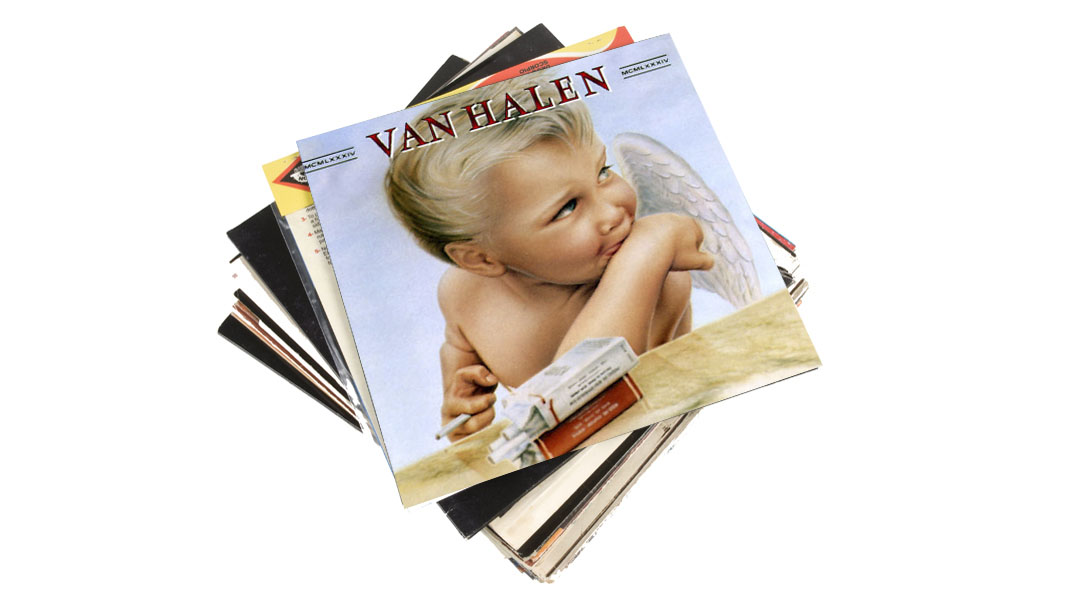
1. Van Halen - 1984 (1984)
“Eddie’s the guy. He always has been and always will be. Whenever I hear him playing guitar, he sounds like the future, no matter what year the record was recorded, everything sounds beyond modern. My first memory as a human was me playing fake guitar on a fake stage at my parents’ house, playing along to Panama.
“The minute I put on that album with that opening sequence and the synthesiser of 1984, I’m just transported to a fantasy land where everything is perfect. His guitar playing… I’m not even worthy of talking about it. He’s the man.
“That kickstarted me into rock music. I had an older brother and he said, ‘Here’s Van Halen, go!’ And I was off; it began my love with music.”
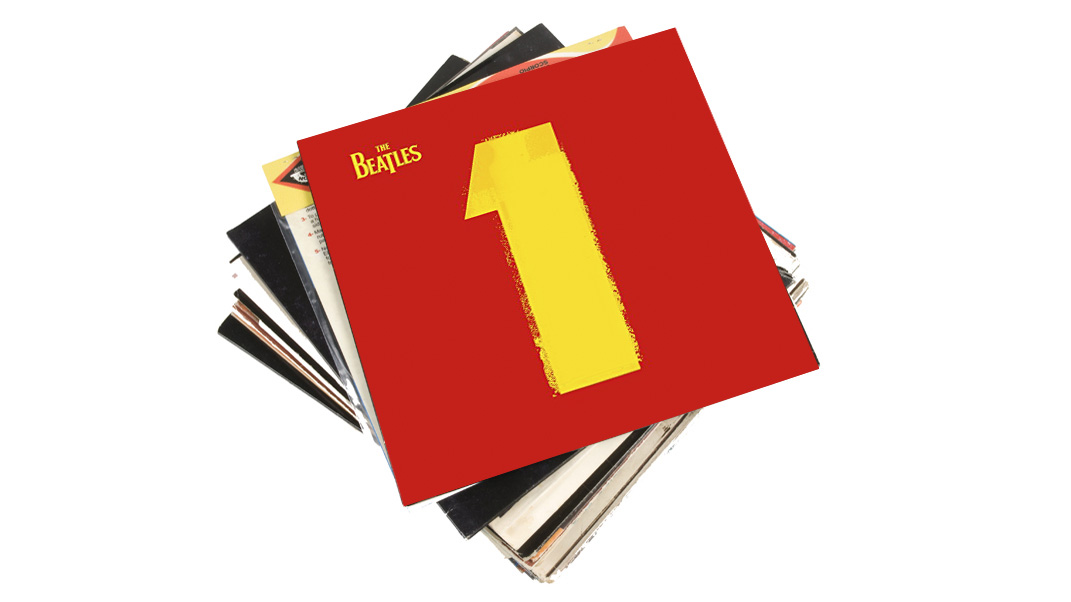
2. The Beatles - 1 (2000)
“This isn’t a proper album, I suppose, but it’s for the song Day Tripper - it’s on the anthology of all the number one singles that they had. It’s a collection of their seven-inch singles, so it’s not a proper album besides a compilation, but Day Tripper helped me figure out how a riff works.
“It was, 'Here’s a riff on the E string - okay - then it moves to the A string, similar to a conventional blues pattern but kicked up into a rock version of that.' When I was in fourth grade, our band at the time covered Day Tripper, and that’s when I realised, 'This is how riffs work. You do this and you shift it up and you solo over this part.'
“It helped me to construct my own songs based on the formula for that song. Which was a tried and true formula by then, but for me, Day Tripper sent me off to the races where I could do my own version of that. The formula was presented to me with that song: 'Here’s how you construct a song.' My parents were always playing Beatles and Stones around the house, so I grew up around that. Right away it was, 'What’s this riff?'
“Then there’s Paperback Writer, which is on this album, too. There was distortion on there. I already liked AC/DC and Van Halen at the time but Paperback Writer was like… these Beatles guys have got some teeth after all. These guys aren’t just laid-back and playing the pop hits. I knew this was history here.”
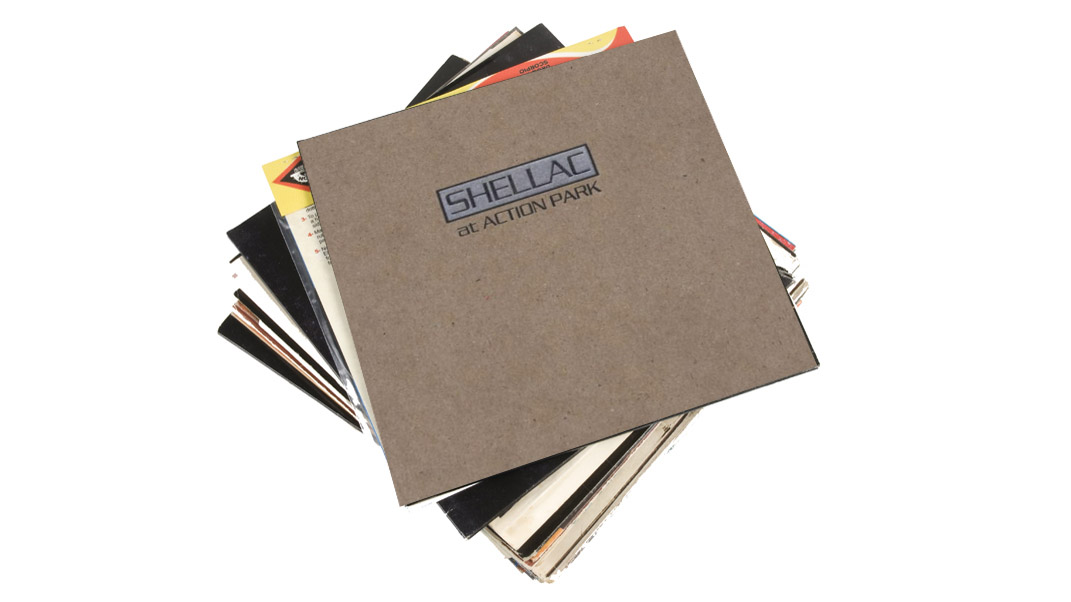
3. Shellac - At Action Park (1994)
“I grew up on the heavier side of music, and I loved Metallica and Pantera. Van Halen and AC/DC, too, so I understood the riff and how the pentatonic scale worked and how to sound heavy. I could get that a little bit; I could understand it as a fan of the music and as a guitar player. But when I heard At Action Park, it felt so completely wrong to me.
“In my own world of metal and punk, I couldn’t get it: 'What the fuck happened here?! Why does it sound so bad?' I was so intrigued by how bad it was tonally: 'What is it?'
“And that was my introduction to dissonance. They were finding these notes that don’t belong together and rubbing them so violently that it starts shaking your bones. I was so intrigued by it that I fell in love with the record, and it’s probably my favourite record of all time now.
It changed my concept of heavy
“It changed my concept of heavy. It’s not just palm-muting and mean Sabbath riffs. Those are crucial and great, but this changed my understanding of what heavy is and what it could be. It opened me up to a whole new level - it was going from 2D to 3D as far as what aggressive music could be.
“It was a huge one for me, and their vibe - they weren’t guys with long hair like rock guys who were trying to be tough. They were coming from the indie-rock world. I didn’t know what they looked like and I didn’t want to. It just scared me in a non-conventional way. Still, when I put it on, I feel that’s my religion, and that’s where I go to.”
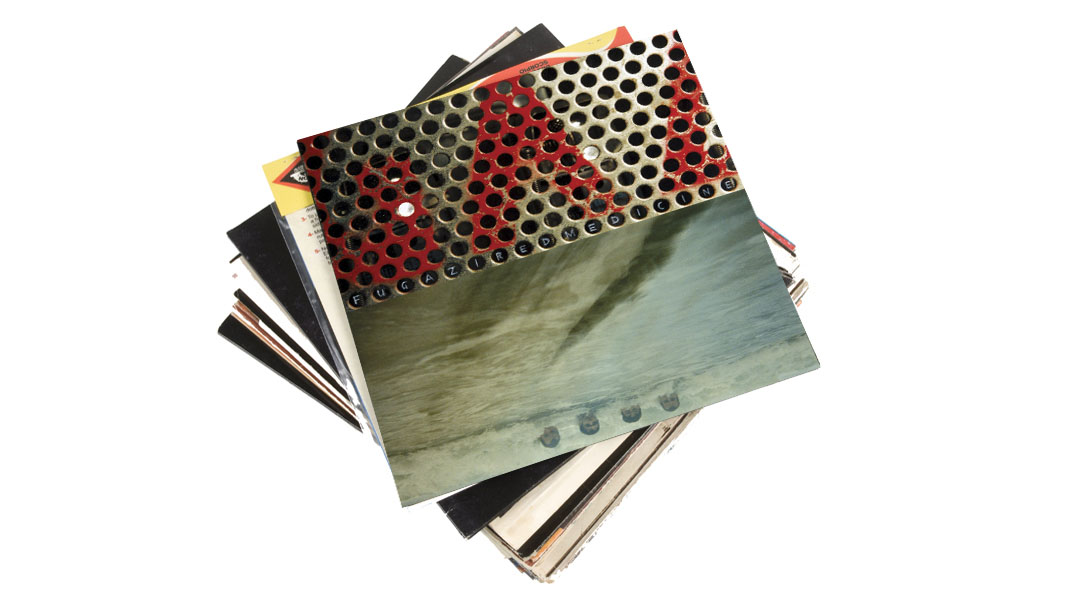
4. Fugazi - Red Medicine (1995)
“Around the time I heard At Action Park, I also heard Red Medicine. That kind of arrived in the same way for me.
“I asked my brother, ‘Why does it sound so bad? I grew up on Anthrax and riffs. What’s happening here, man? I’m losing you. Did you get hearing damage I didn’t know about? Because this shit just sounds off.'
“And the intro to the first song on that album sounds wrong, over-distorted and atonal. That just grabbed me. It sucked me right in, because I couldn’t figure out why people were doing this. Again, we’re back at dissonance and a new way of approaching heavy music. But Fugazi also injected melody, interesting rhythms and all kinds of interesting guitar interplay where Ian plays something very different than Gi [Guy Picciotto], and they play off each other very well.
Everyone should have a Fugazi worship phase and then go on from there, keeping them in your heart
“The vocals are crazy, and I like old-school punk values; they’re not afraid to speak their minds. That still stands with me. It’s like meeting a friend who likes Donald Trump: ‘What the fuck, man?! What’s wrong with you?’ If I’m meeting a friend who I find out doesn’t like Fugazi… [I'm like,] ‘This changes shit. I’ve got to go home and reflect on it because I don’t know if I can handle this right now!’
“This started my love affair with Fugazi. Everyone should have a Fugazi worship phase and then go on from there, keeping them in your heart. Those two albums came like a one-two punch right when I needed it. When I was still loving music but punk was getting poppy and I was like, 'This is cool, but it’s losing some balls.'
“Then, all of a sudden, that shit humbled me. And it was less is more, no more showboating about how fast your solo is. This is still one of my favourites, for sure.”
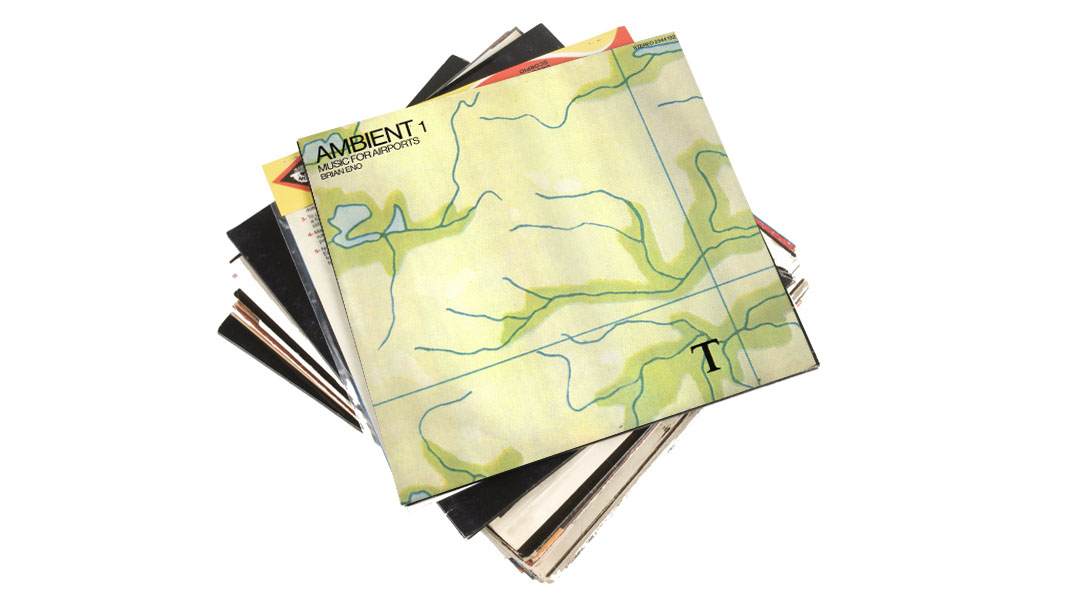
5. Brian Eno - Ambient 1: Music For Airports (1978)
“I didn’t know much about Eno until 15 years ago or so. A friend of mine, a good dude, gave me a hard drive full of music, and it was mainly metal stuff, but a lot of ambient music, too. That was my first run-in with Eno.
“I’m a huge fan of ambient and minimalist music, but Music For Airports, that melody could go on forever and ever. I just never want it to end. It’s not just a simple drone where it goes on and on, but a mixture of notes where there’s melody in there and two pianos overlapping in a certain way that has a really ethereal feel to it. Something about those overlapping pianos has a unique sound to it. It transports and takes you away from other types of ambient music.
I think it’s amazing that one of my favourite pieces came from a commissioned work
“I know it was a commissioned piece for LaGuardia airport in New York, and I think it’s amazing that one of my favourite pieces came from a commissioned work. That idea that it was something people could hear over and over as they’re waiting for a flight, and it’s calming and soothing.
“I must have heard that album thousands of times, because he was successful in creating something you can hear over and over again but it still has impact and a calming effect on you. He’s one of my favourite artists, and that album is special to me.”
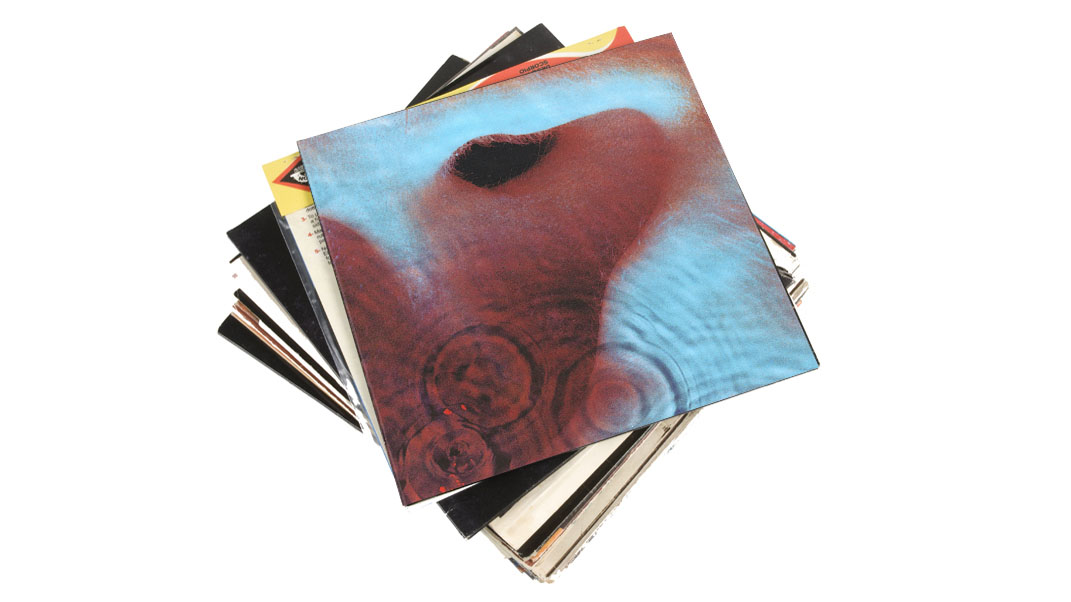
6. Pink Floyd - Meddle (1971)
“I was a latecomer to Pink Floyd, because they were never in my wheelhouse as a kid growing up. My brother didn’t show them to me, so it wasn’t until later on, in the early 2000s, when I got hip to the album Meddle and thought, 'Wait, this is almost heavier than Sabbath. Some of the parts are exploding.'
“The slide work by David Gilmour… and it starts off with a pummelling bass tone with crazy delay. There’s some aggression that you don’t get from a lot of other bands from that time. Don’t get me wrong, Sabbath had it. They were masters of that, but this had a weird element to it, as if something was off a little bit.
“I first heard Echoes, with its epic high and lows. Zeppelin nailed [those kind of dynamics] and they did a good job, too, but something about Echoes just hit me and it made sense to me with the flow and composition of that song. It proved you can be off the map.
How diverse is that record? They even have a dog singing one of the songs!
“How diverse is that record? They even have a dog singing one of the songs! It’s a bit absurd, but very musical, and very progressive. I can’t imagine what it would be like in that year to hear that record and think, 'What the fuck is happening to music?!'
“David Gilmour is a master, and I could pick any number of albums he’s been a part of, but that one is my favourite. The slide work is very tasteful and very catchy, too - anthemic in some ways. I listen to that album with the same fondness every time. It hits me right away.”
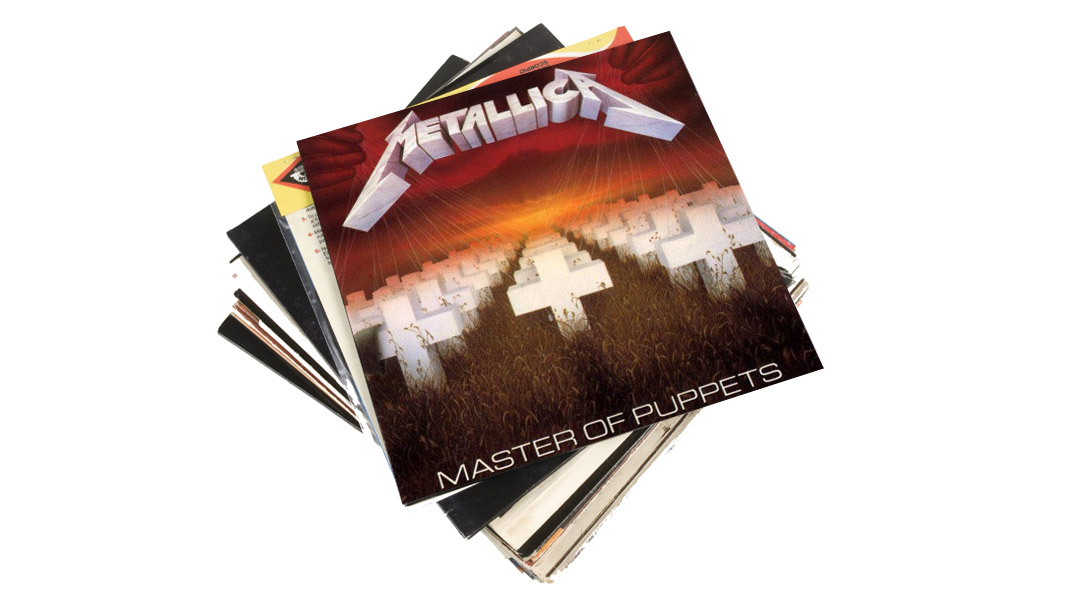
7. Metallica - Master Of Puppets (1986)
“I grew up loving metal, and I loved seeing the classical side of them, where they got into the almost medieval-type acoustic guitars. I loved that. The fact they could marry those two feels of music, that was really engaging to me and it went beyond the idea of, 'Here’s a metal riff and another metal riff', which I appreciate, but I really liked that they took departures and really laid into melody.
“It made me realise it’s okay to go down these roads that are melodic and not brutally heavy the entire time. And it’s okay to have a seven-minute song. They did that on Ride The Lightning also, but it felt like it really came into its own on Master Of Puppets.
It made me realise it’s okay to go down these roads that are melodic and not brutally heavy the entire time
“I really like the one-note riffing, too - chugging on E for a while and coming up with interesting chug patterns like on Leper Messiah. It’s all about the right hand there: locking in with the drummer and locking in with the band. They did that a lot on that record and it stuck with me big-time.
“Hair metal was happening [at the time] and all that garbage, and they weren’t afraid to wander into pretty music, but they didn’t go down the cheesy route. There’s a difference between being melodic and being a poppy, cheesy version of that. But they were tougher than ever and still dug in deep when it came to the heavy stuff. That’s my favourite Metallica record by far. It’s the one I revisit most often.”
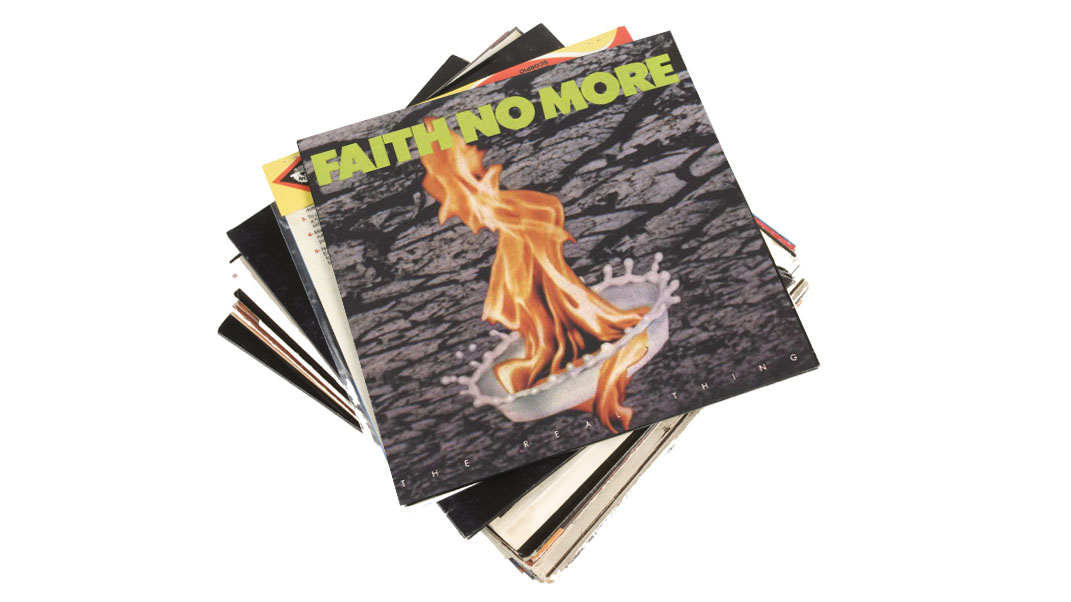
8. Faith No More - The Real Thing (1989)
“Both Angel Dust and The Real Thing are great, but there’s some more straight-up riffing on the The Real Thing.
“Jim Martin is one of my favourite guitarists; he floors me. As heartbreaking as it is for me that he’s out of the band, each band operates in their own different way and has their reasons for going about things. That is what it is. But I just love his guitar playing.
“Surprise! You’re Dead! - that track is one of the greatest thrash riffs ever written. I don’t have riff envy; I’m just glad that song exists. I don’t write like that, but I’m so thankful that song is out there because it’s one of the most perfect versions of a thrash song.
“Apparently, that song was written when Jim Martin and Cliff Burton were in a band together prior [called Agents Of Misfortune], so I guess that was one of the leftover songs from when Cliff and Jim jammed together. I’m a massive Cliff Burton fan, so that has a special place in my heart also because two of my favourite dudes made that happen together.
I’m so thankful Surprise! You’re Dead! is out there because it’s one of the most perfect versions of a thrash song
“In terms of having drones - having one note hang for a while then changing - the keyboards of Faith No More were very minimal in a cool way. They had texture pieces, and then the bass guitar would wander through those in and out. If you were to take away the keyboards, you’d really lose something integral to Faith No More.
“Keyboards are a delicate thing; I love them as a texture piece, but not as a riff-orientated instrument in metal. I’ve taken a lot away from that. I love Jim Martin and everyone else in the band, but the interplay between the keyboards and the guitar aren’t given enough credit. Sometimes they sound like strings, sometimes almost a choir.
“This is a record I can revisit anytime because it’s timeless. The production is what it is - it’s from that era - but good songs cut through any kind of production issues.”
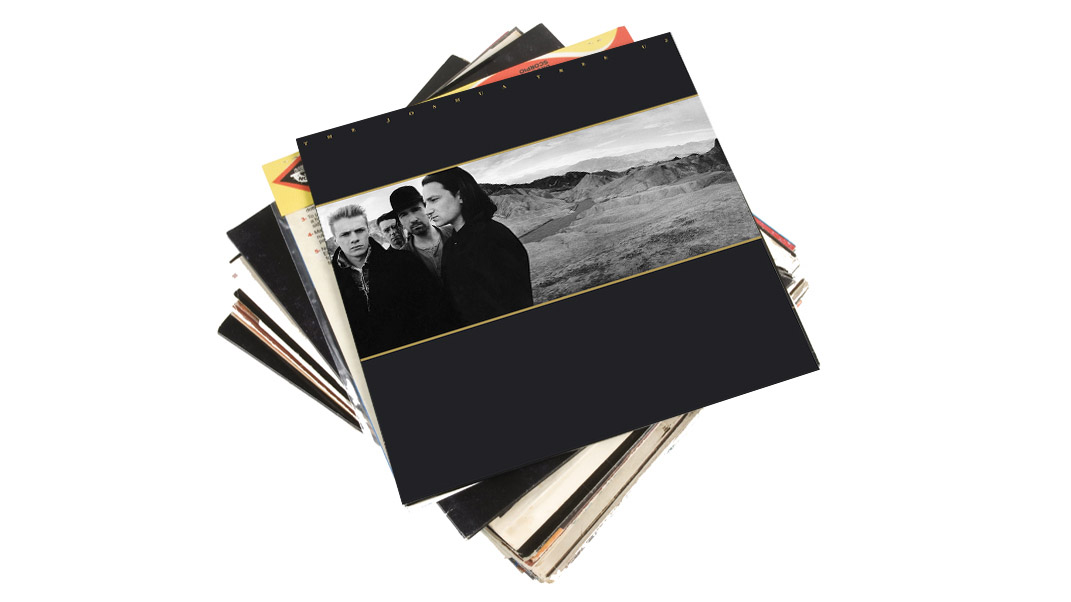
9. U2 - The Joshua Tree (1987)
“The Edge is a very inspiring person and musician, not just as a guitar player. His humility means a lot to me. He can step aside to serve the song, and he’s a texture player. He’s an influence on me, and seeing how he and Eno teamed up to match the dotted eighth note [delay] effect on that record was interesting.
“Eno is a master of ethereal tones, and seeing his brain mixed with the Edge’s results in a beautiful mix of melody and rhythm. I think everything fell into place on this record. They went for it - they went big and it worked. Those first few songs are solid gold. Some of the most epic guitar work ever happened on that record as far as I’m concerned.
“They created a huge, smash record, but it still has integrity. It’s really a bold record that says a lot but it’s not flashy; it’s very heady, and to capture that as a guitar player is humbling. To see Edge pull it off with such restraint and feel to it is a breath of fresh air. So, to see how he conducts himself as a musician is very inspiring. More people could take a page from the Edge book.”
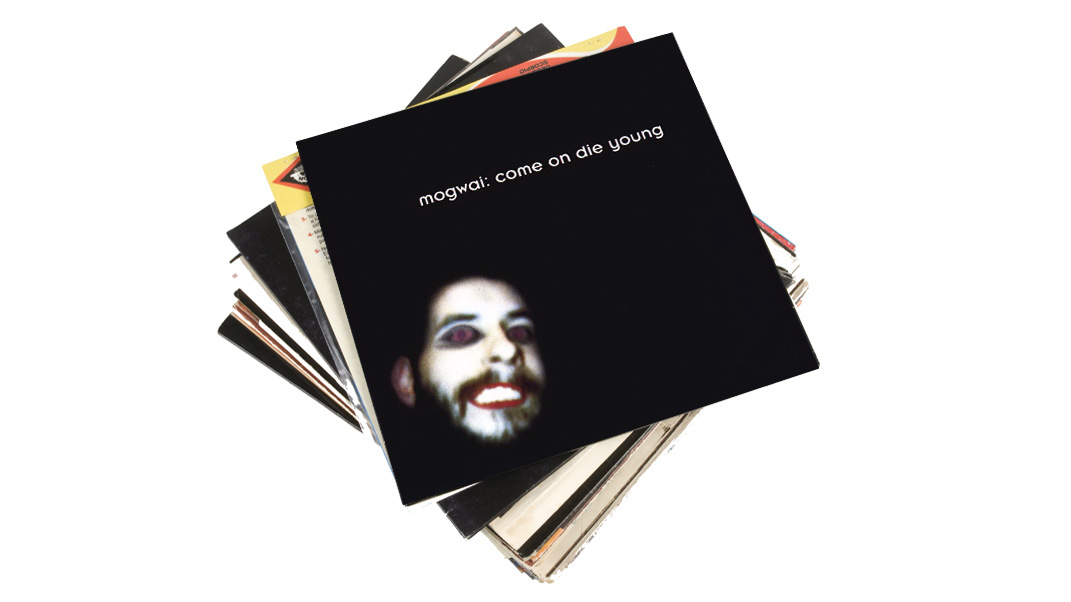
10. Mogwai - Come On Die Young (1999)
“This record was huge for me. My brother again, God bless him, got me into all kinds of good stuff. That’s how I got into Fugazi and Shellac and exploring weird indie rock that’s dark and a bit agitated and messed up. He laid this record on me, too.
“The opening sample with Iggy Pop; that’s class right away, so that perked my ears up. More importantly, great music is behind it, and this was actually my first brush with instrumental rock music.
“Because, prior to that, I had no idea that was a thing. I liked other instrumental music - I liked surf music and I knew you didn’t always need lyrics or vocalists. But hearing a band with heavy dramatic music without any vocal effects for the most part, that kind of cracked things wide open for me.
Hearing a band with heavy dramatic music without any vocal effects cracked things wide open for me
“And without a vocalist, it can change the song structure and shift everything around. Early Metallica didn’t adhere to the verse/chorus/verse/chorus/bridge yadda yadda either; they made it okay to be weird, and anyone who makes it okay to be weird I’m a huge fan of!
“Mogwai did their own thing, and in doing their own thing they kind of changed the standard for what is expected from instrumental music. But that leads me to my next album…”
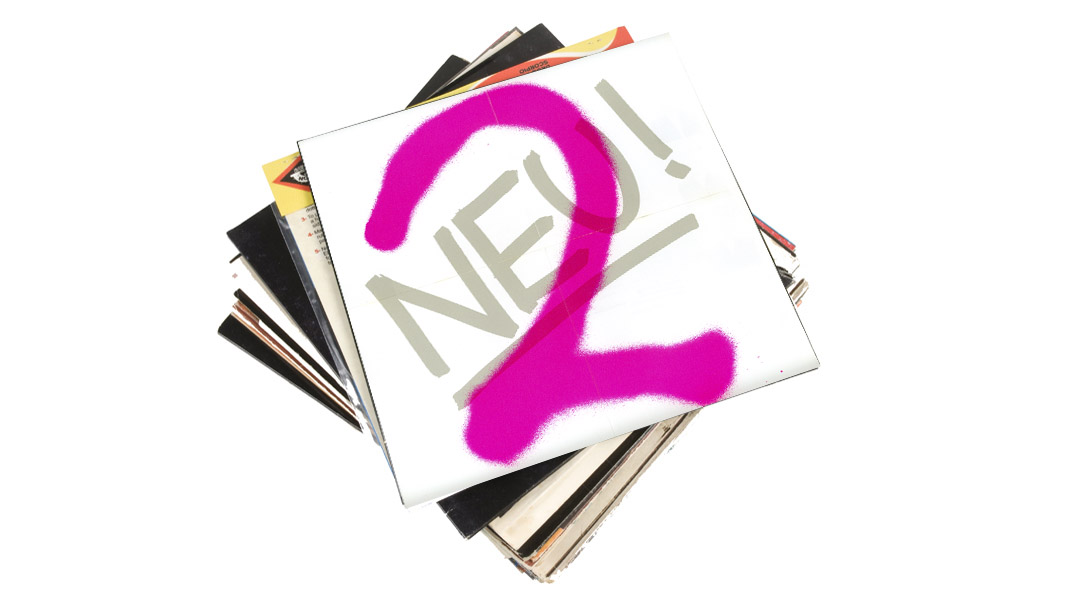
11. Neu! - Neu! 2 (1973)
“They’re from the krautrock movement with [band leader] Michael Rother, and I can’t talk about instrumental music without talking about the importance of Neu! and all those bands that were part of that movement.
“As much as I love King Crimson, Genesis and those bands, Neu! 2 is like Music For Airports in that it's one of the riffs I could hear forever and ever. I could put that on repeat and walk around with headphones all day and never want to change the track.
“It’s funny, because I think krautrock gets its fair do in the world, but all this [contemporary] instrumental music is nothing new; it’s all been done almost better decades ago in the early '70s. The whole post-rock movement, to me, yes, it’s a thing, I guess, and we all have our delay pedals and whatnot, but let’s not forget people before us have done this in a very interesting way that was very culturally relevant.
These kinds of bands don’t get enough credit, considering post-rock is a genre now
“And everything Michael Rother was a part of I’m a huge fan of. This record especially, I heard it pretty early on and not long after hearing Mogwai. It’s one of those records that I think everyone should listen to. And there’s an interesting story behind it. With limited budgets, they had to do some tape manipulation to make the whole record happen.
“These kinds of bands don’t get enough credit, considering post-rock is a genre now and [we] forget what happened before us. There were so many great bands doing crazy, cool things that fall in line with what is now called post-rock.
“They carved a niche out that was way bigger than post-rock ages ago, and I think everyone in that style should tip their hat to what happened, and they’re influenced by it whether they know it or not.”
Don't Miss
Post-rock round table: Russian Circles, This Will Destroy You and Maybeshewill speak
Mike has been Editor-in-Chief of GuitarWorld.com since 2019, and an offset fiend and recovering pedal addict for far longer. He has a master's degree in journalism from Cardiff University, and 15 years' experience writing and editing for guitar publications including MusicRadar, Total Guitar and Guitarist, as well as 20 years of recording and live experience in original and function bands. During his career, he has interviewed the likes of John Frusciante, Chris Cornell, Tom Morello, Matt Bellamy, Kirk Hammett, Jerry Cantrell, Joe Satriani, Tom DeLonge, Radiohead's Ed O'Brien, Polyphia, Tosin Abasi, Yvette Young and many more. His writing also appears in the The Cambridge Companion to the Electric Guitar. In his free time, you'll find him making progressive instrumental rock as Maebe.
